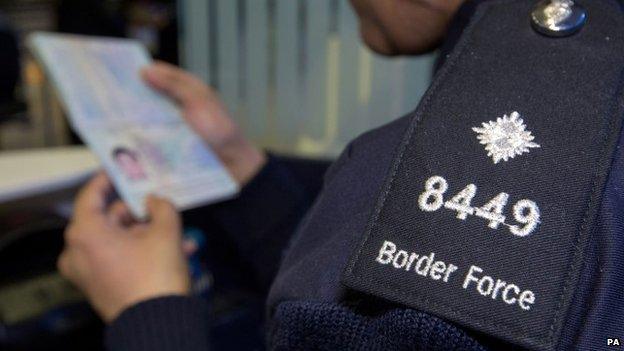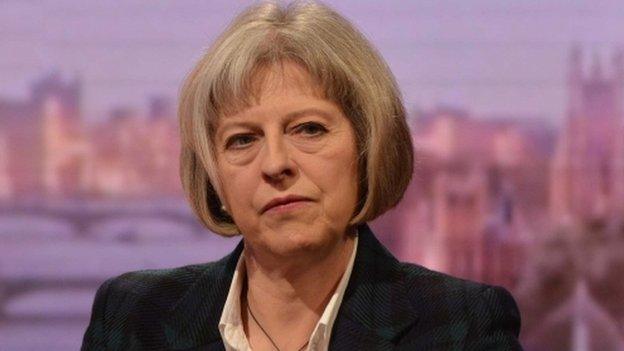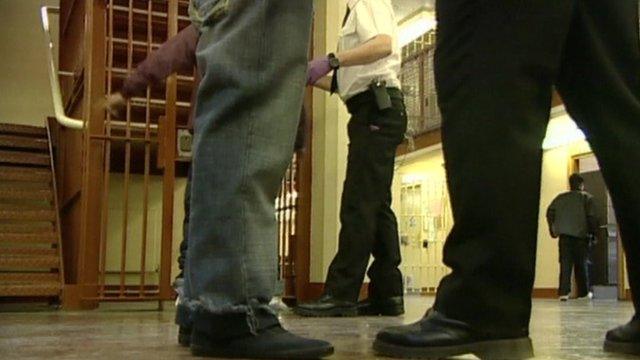MPs warning over foreign criminal checks
- Published

MPs have warned about the checks done on foreign criminals before and after they enter the UK after recent attacks.
The Home Affairs Committee, external said police were being hampered in identifying and arresting offenders because they were not being given up-to-date information.
The killing of schoolgirl Alice Gross, who was murdered by Latvian Arnis Zalkalns last August, highlighted the danger of border failings, it said.
The Home Office said "every resource" was being used to root out criminals.
In a new report on immigration controls, MPs cited a number of recent high-profile crimes committed by foreigners with existing criminal records and said administrative and IT failings were making it harder for officials to keep track of them.
'Timely information'
Zalkalns served seven years in jail in Latvia for murdering his wife and burying her in a shallow grave, but moved to the UK in 2007.
MPs were told that in Zalkalns' case, the information that was available about him at the time was not entered into the Home Office's database.
"The Home Office, the police and Border Force are clearly reliant on access to timely information to enable them to intervene when criminals attempt to enter the UK," the cross-party committee said.
"The murder of Alice Gross and the violence inflicted on Professor Paul Kohler show that such reliance is inadequate."
Warning Index
Mr Kohler was savagely beaten by a group of Polish men at his home in Wimbledon, south west London, last year. The gang were career criminals with a long history of violent attacks in their native country.
The MPs said the Warning Index system used by UK border staff to identify terrorists and criminals, is "considerably overdue to be renewed".
While coverage is good for those entering the country by air, the MPs warned that it was poor for people arriving by rail or boat.
The committee said only 67% of foreign criminals who had entered the UK had had their details checked by local police forces against the national police database. The committee said anyone arrested should be immediately subject to such checks.
"We support the government's efforts to improve the data it receives from other countries on people with criminal records who the UK may consider undesirable.
"However, we are unconvinced that the Home Office's IT systems are fit for purpose given the ever increasing volume of data."
'No place'
The Home Office said foreign criminals "have no place in the UK".
"This government is using every resource available to root them out and protect the British public.
"Police criminal records checks on EU nationals have gone up over 700% under this Government, with just over 60,000 requests made to European partners in 2014.
"We already have an outstanding system of public protection that is rightly held up as an example across the world but we are not complacent.
"We are leading the way in Europe to improve the exchange of information in cases involving dangerous criminals."
The spokesman added: "At the border, all passengers are checked against police, security and immigration watch lists and where we are aware of individuals who pose a risk, Border Force officers can - and do - refuse them entry."
- Published4 March 2015

- Published5 February 2015

- Published22 October 2014
